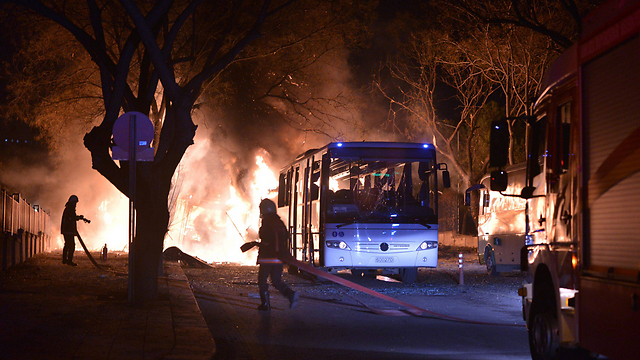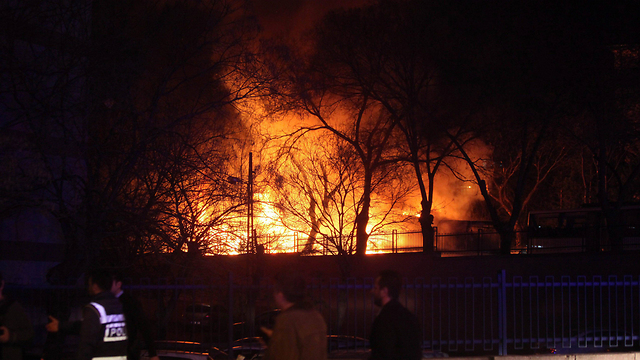A large explosion in the Turkish capital which targeted a bus carrying military personnel killed at least 18 and injured at least 45.
At least 28 people died and 61 others were injured in a large explosion in the Turkish capital of Ankara on Wednesday, which targeted a bus carrying military personnel, according to an official at the armed forces’ General Staff.
The explosion occurred during rush hour in an area close to where military headquarters and parliament are located. “According to preliminary assessments, five people died and 10 people were injured,” Governor Mehmet Kiliclar told the state-run Anadolu Agency. “It is believed that a bomb-laden car caused the explosion.”
News reports said some cars caught fire and dozens of ambulances were sent to the scene. Dark smoke could be seen billowing from a distance.

It was not clear who was behind the bombing Wednesday. Kurdish rebels, the Islamic State group and a leftist extremist group have carried out attacks in the country recently.
In October, suicide bombings blamed on IS targeted a peace rally outside the main train station in Ankara, killing 102 people in Turkey’s deadliest attack in years.

Wednesday’s attack comes at a tense time when the Turkish government is facing an array of challenges. A fragile peace process with the Kurdish rebels collapsed in the summer. The Turkish security forces have been engaged in large-scale operations against Kurdish militants in the southeast since December, imposing controversial curfews in flashpoint areas, and the fighting has displaced tens of thousands of civilians.
Turkey has also been helping efforts led by the United States to combat the Islamic State group in neighboring Syria, and has faced several deadly bombings in the last year that were blamed on IS.
The Syrian war, meanwhile, is raging along Turkey’s southern border. Recent airstrikes by Russian and Syrian forces have prompted tens of thousands of Syrian refugees to flee to Turkey’s border. Turkey so far has refused to let them in, despite being urged to do so by the United Nations and European nations, but is sending aid to Syrian refugee camps right across the border.
Turkey, which is already home to 2.5 million Syrian refugees, has also been a key focus of European Union efforts to halt the biggest flow of refugees to the continent since World War II. Hundreds, sometimes thousands, of refugees leave every night from Turkey to cross the sea to Greece in smugglers’ boats.
As reported by Ynetnews
